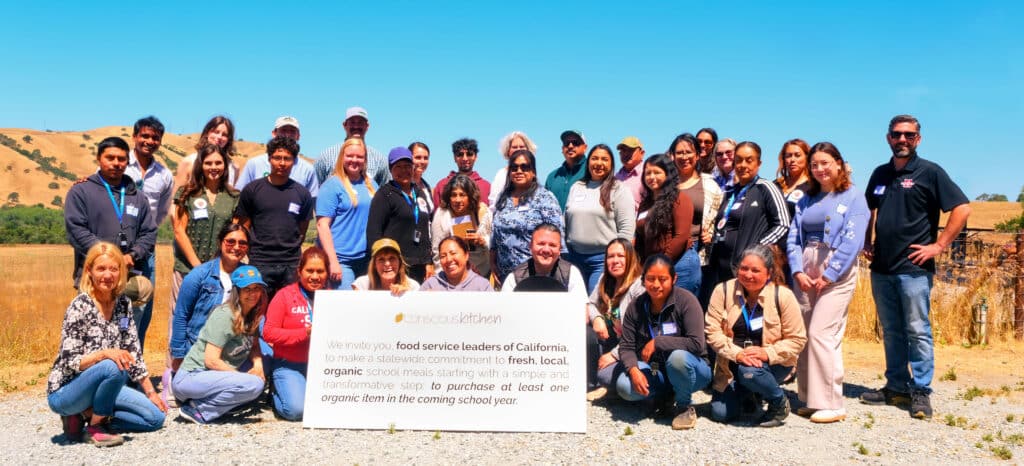During the summer of 2025, Conscious Kitchen set out on the Organic Farm-to-School Road Tour to connect small and mid-sized organic farms with school districts across California. With a vision of providing every student in the state with fresh, local, and organic food, this initiative invites school food service leaders, farmers, and community partners to come together, share stories, and explore how we can overcome the challenges in sourcing better food for our kids. Each stop on the tour is an opportunity to dive deeper into the issues at hand, learn from one another, and strengthen the partnerships that are shaping the future of school meals. Here’s a look at one of our recent gatherings on the road and the incredible conversations that are moving us toward a healthier, more sustainable food system for California’s students.
Road Tour Stop #2: Paicines Ranch
The Central Coast Gathering at Paicines Ranch was more than just a meeting of farmers and school food service leaders, it was a celebration of the region’s deep agricultural roots and a powerful step forward in our ongoing efforts to transform school food systems.
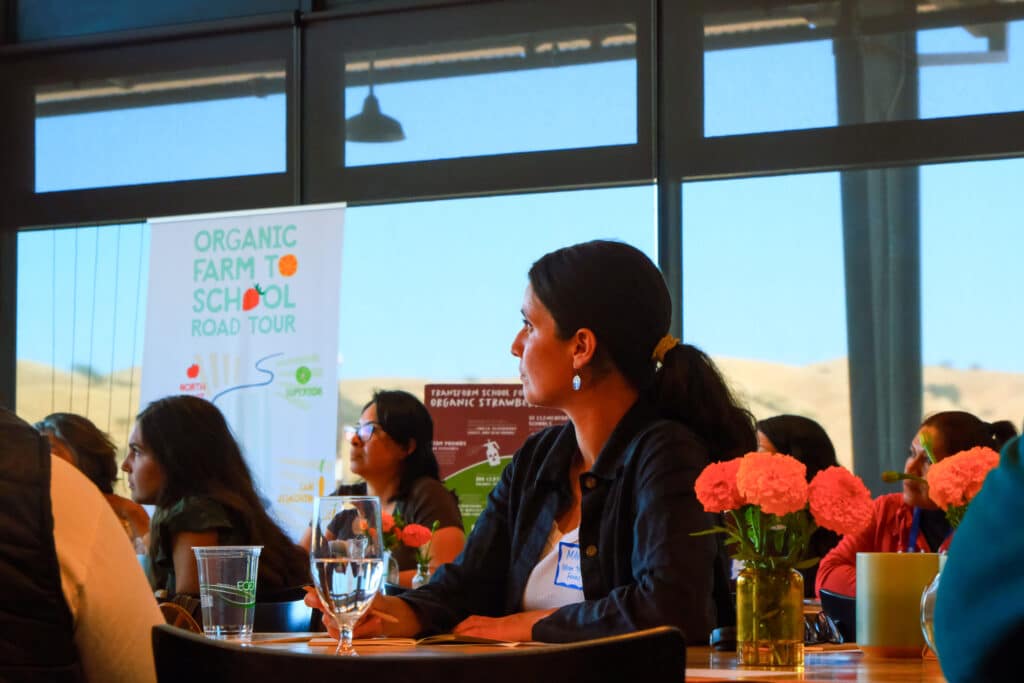
This event felt particularly special because it was held in the heart of California’s organic farming community, a place where so many of our partner farms are based. The day was made even more meaningful by the presence of the Mayor of San Juan Bautista, Leslie Jordan, and Andrés Rodriguez from the Office of Speaker Robert Rivas. Conscious Kitchen is thrilled to be working with both offices for the first time. Their presence brought a new energy to the conversations and elevated the entire experience.
The morning started with a simple, yet profound question: Why organic? A small panel of food service directors and organic farmers shared personal journeys and the hurdles they have overcome to integrate organic foods into school meal programs. The stories varied: some had spent years advocating for change in their districts, while others were just beginning their journeys of connecting with local farms. But one thing was clear: organic food is no longer considered a “nice-to-have,” but rather a must-have for the health of our students and planet.
As the afternoon progressed, the gathering split into two breakout groups: organic farmers and food service leaders/community partners. Conscious Kitchen facilitated a deep dive into the unique challenges and opportunities within each respective field. The conversations were rich, thoughtful, and at times, unexpectedly moving.
Farmer Stories
In the farmers’ breakout session, conversation quickly turned to visibility, marketing, and storytelling. The Conscious Kitchen team turned the mic to farmers to ask what would be most valuable in farm visits and gatherings. The farmers agreed upon the concrete need to be seen by, known among, on the radar of school food buyers.
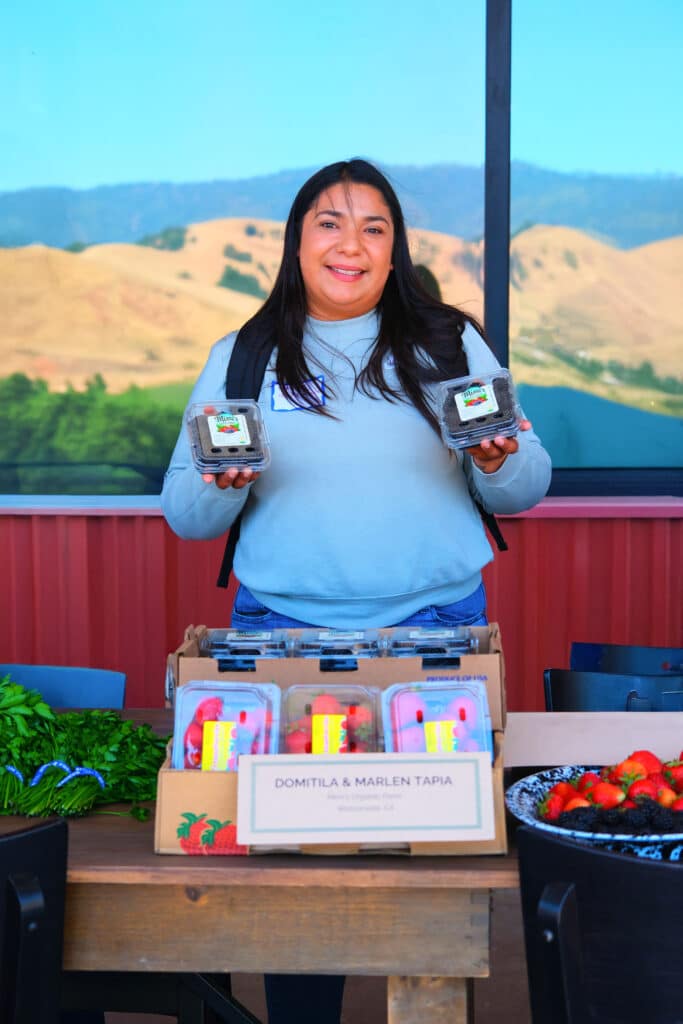
As Conscious Kitchen visited farms, the team began creating standardized content to help connect farmers with institutional buyers. This included farmer profiles featuring a photo, farm name, location, and crops grown — similar to our Organic Produce of the Month series. These profiles can be shared digitally and in print with schools, bridging the gap between farmers and the communities they serve. Andrés from Speaker Rivas’s office suggested distributing these profiles at events like Farm Bureau meetings, where food service directors often make procurement decisions. “Let’s make sure these farmers’ stories are seen where decisions are made,” he urged.
As conversations continued and stories were shared, we saw just how deeply connected farmers are to the land and their communities. One farmer, Brandon, suggested more consistent crop planning together with school food buyers. “If we meet and plan with school buyers ahead of time, we can provide them with all their produce needs,” he said when asked how to make farm-to-school programs more efficient.
Farmers also expressed a desire for more digital presence. The suggestion of building simple websites for farms to tell their story was well received. It is inspiring to see how willing everyone is to collaborate and find creative solutions to help small farms thrive in institutional markets and beyond.
Addressing Barriers
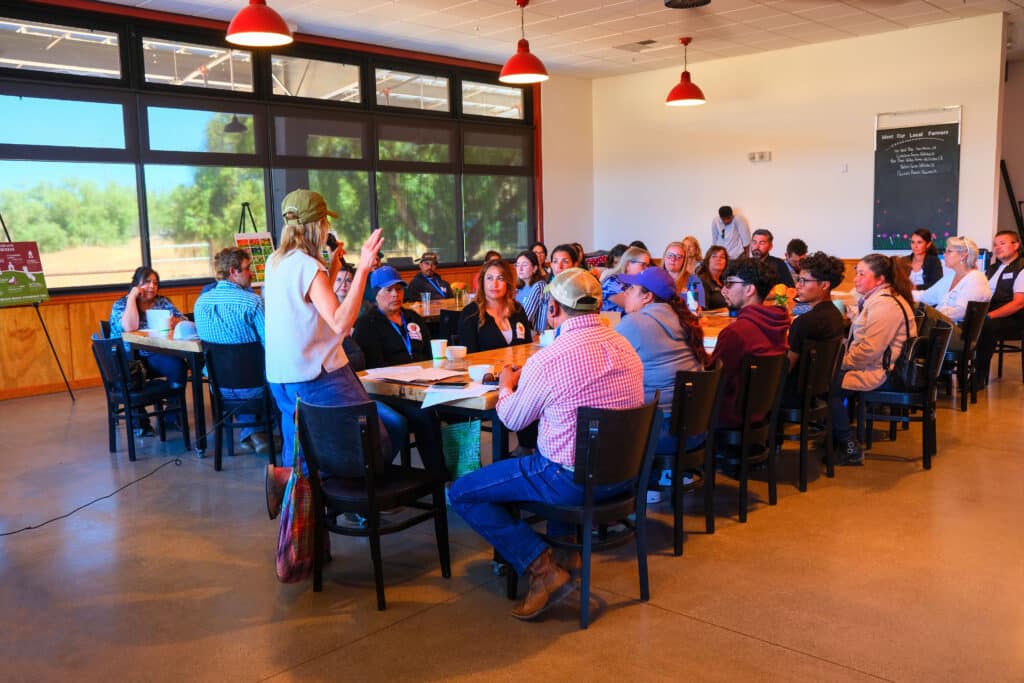
On the other side of the room, food service directors and community partners discussed barriers to bringing more organic food into school menus. The conversation quickly turned to “forward purchasing,” the process of committing to buy product in advance to help farmers plan. Many were unaware that rules had recently changed to allow this.
The tenor then shifted to more personal exchange. Christina Varela, Director of Food Services for Salinas City Elementary School District, spoke about how much she appreciated having two parents involved in her work, supporting efforts to bring organic food to her district. “These parents understand the value of good food, and their involvement has been such a boost to the cause,” she said, her voice filled with gratitude. Having parents as advocates is key to making changes sustainable.
Mayor Jordan shared a powerful story from her own community. In San Juan Bautista, a nonprofit helps distribute surplus organic produce to seniors. She suggested that schools could set up their own farmers’ markets to sell surplus produce, an idea that had the room buzzing.
Tasting the Future of School Food
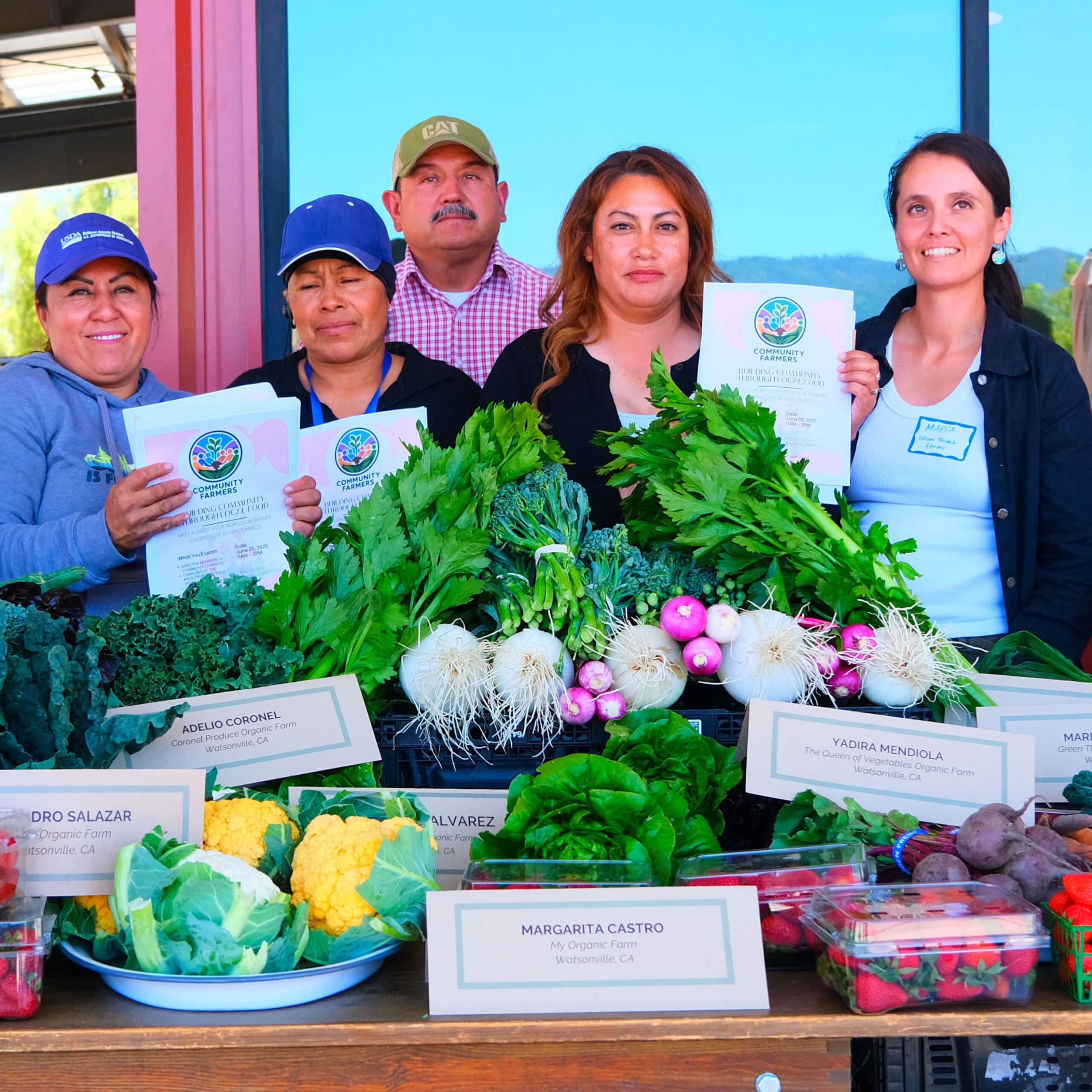
The afternoon culminated in a vibrant Producer Marketplace, where farmers displayed their beautiful summer bounties. The tables were filled with fresh, vibrant organic produce that represented the best of what the Central Coast has to offer. Food service leaders had the chance to taste the fruits of the farmers’ labor and make meaningful connections with the growers themselves.
“This is where the magic happens. It’s about building these relationships so we can bring this food into our schools.” Jeanie Aitken, Food & Nutrition Services Director for Pajaro Valley Unified School District, expressed the multifaceted importance of events like this one.
Charging Ahead
There was an overwhelming sense of momentum in the air, as we wrapped up an incredible Conscious Kitchen community gathering. Through the conversations, ideas shared, and budding partnerships, it became even more clear that a future of 100% organic meals for California’s students is within reach. As we continue the Organic Farm-to-School Road Tour, we are more energized than ever.
